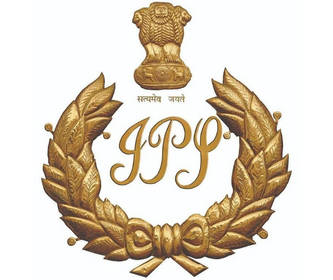
Background
In September 2021, NLSIU initiated a research project to assess and strengthen the role of women in policing in India, with a focus on the southern state of Karnataka. Since 2009, the need to increase the representation of women in the police forces has gained prominence in Indian policy discourse. This shift is attributed to certain criminal law reforms that enlarged the statutory functions to be undertaken by women police personnel. In 2009 the Government of India adopted, for the first time, a target of 33% representation of women in the police. The Government of Karnataka has adopted a target of 25%. Achieving this target in a time-bound manner will require coordinated and simultaneous efforts at multiple levels to ensure the recruitment of women at each entry level, year-on-year; robust facilities and infrastructure; and effective policies by way of creating an enabling environment for women. The aim of the project is to deepen evidence on the challenges facing policewomen in the state, identify persistent gaps in implementation of legal and policy commitments, and recommend actionable measures for ensuring an equitable growth of women in the police.
The project is funded by the Hanns Seidel Stiftung, a leading German Foundation. It has two phases: Phase 1 that began in September 2021 and ended in December 2023, and Phase 2 that began in January 2024 and is continuing till the end of 2026.
Phase 1: September 2021 – December 2023
The focus during Phase 1 of the project was to conduct ground research. In May 2022, NLSIU entered a Memorandum of Understanding with the Karnataka State Police to conduct an independent assessment of the status, role and challenges facing policewomen at different levels within the state police. The study involved a) district and police station-wise assessment of women’s representation at different ranks across the state; and b) ground assessment of challenges faced by policewomen in Karnataka through one-on-one interviews with senior women police officers, focus group discussions with women constables in 8-10 districts across Karnataka, and administration of a perception survey to gauge the views of male and female police officers on the importance of having women in policing. For details on the methodology, see the concept note.
The assessment was completed during 2021-2023. An initial draft of the study report was shared with the police department in October 2023 and a revised draft in early 2024 after incorporating feedback received from the department. The final report was presented before the DGIGP and other senior police leaders in March 2025.
Read the ReportAlongside research, the project also developed targeted resources explaining legal provisions, national policies as well as international practices and trends on supporting policewomen. These are being disseminated widely to police leaders, practitioners and researchers. The resources are listed below.
- Explainer Note | Policewomen in India: Legal mandate and policy guidelines for exclusive and preferable functions. The note is available in English and Kannada.
- Blog Series |
- December 22, 2022: “Dispatches from the Women in Police project,” Devyani Srivastava, Laksha Kalappa
- March 3, 2023: “Police Stations: Lonely Workplaces for Women,” Devyani Srivastava
- Webinar | ‘Equalising the Role of Women in Police’: This is an online dialogue series featuring programmes, initiatives and research on women in policing from India and around the world. More details of the inaugural webinar, ‘Global Practices on Women in Policing’ is available here.
- Animated video | Legal mandate of policewomen in India
- Compendium | “Strengthening the Role of Women in Policing: Compendium of Institutional Policies, Programs and Initiatives across the Globe”
Final Study Report
The final study report was presented before the police chief and other senior officers in March 2025 and released in September 2025. It can be accessed here.
In The Media
- The Hindu | Karnataka has just 8.9% women in police force, far behind Bihar, Andhra Pradesh, Tamil Nadu: NLSIU study
- Times of India | Karnataka police grapple with slow progress in gender representation: Research
- Deccan Herald | Women form less than 9% of Karnataka state police: NLSIU report
- Vartha Bharati | Karnataka has just 8.9% women in police force, far behind Bihar, Andhra Pradesh, Tamil Nadu: Study
Watch the inaugural webinar on ‘Global Practices on Women in Policing’ below:
Phase 2: January 2024 – December 2026
Building on the empirical research conducted under the 2021-23 women police project, Phase 2 focuses on engaging with the Karnataka State Police to promote better policies for, and an improved understanding of, gender diversity goals, principles, and strategies in policing. One way in which the project seeks to do this is by institutionalising training on the importance of women in policing. NLSIU is engaging with the Karnataka State Police Academy, Mysore, and the Police Training College, Kalaburagi, to deliver refresher courses aimed at mid-level supervisory officers (sub-inspector, inspector and deputy superintendent of police ranks). The training seeks to improve knowledge about constitutional and legal obligations on equal opportunities within the police, different policy initiatives on integrating women, challenges on the ground, and ways in which a gender diverse institution can drive positive policing outcomes remain missing from most training workshops on gender. Jurisprudence around substantive equality, affirmative action, legal remedies and police reforms are discussed to deepen the understanding of organisational changes required for achieving gender diversity in policing. It is hoped that such programs enable supportive leadership at cutting-edge of policing, and contribute to overcoming gender stereotyping and discrimination that continues to constrain women’s growth in the profession.
Further details of the training program will be updated on the project page by end of 2025.
Research Team
- Devyani Srivastava
- Laksha Kalappa Baleyada
- Vidya Pai
- Pavani Lavu
For more information, please reach out to:
Publications
Women in the Karnataka State Police Experiences, Challenges and Opportunities
September 23, 2025

